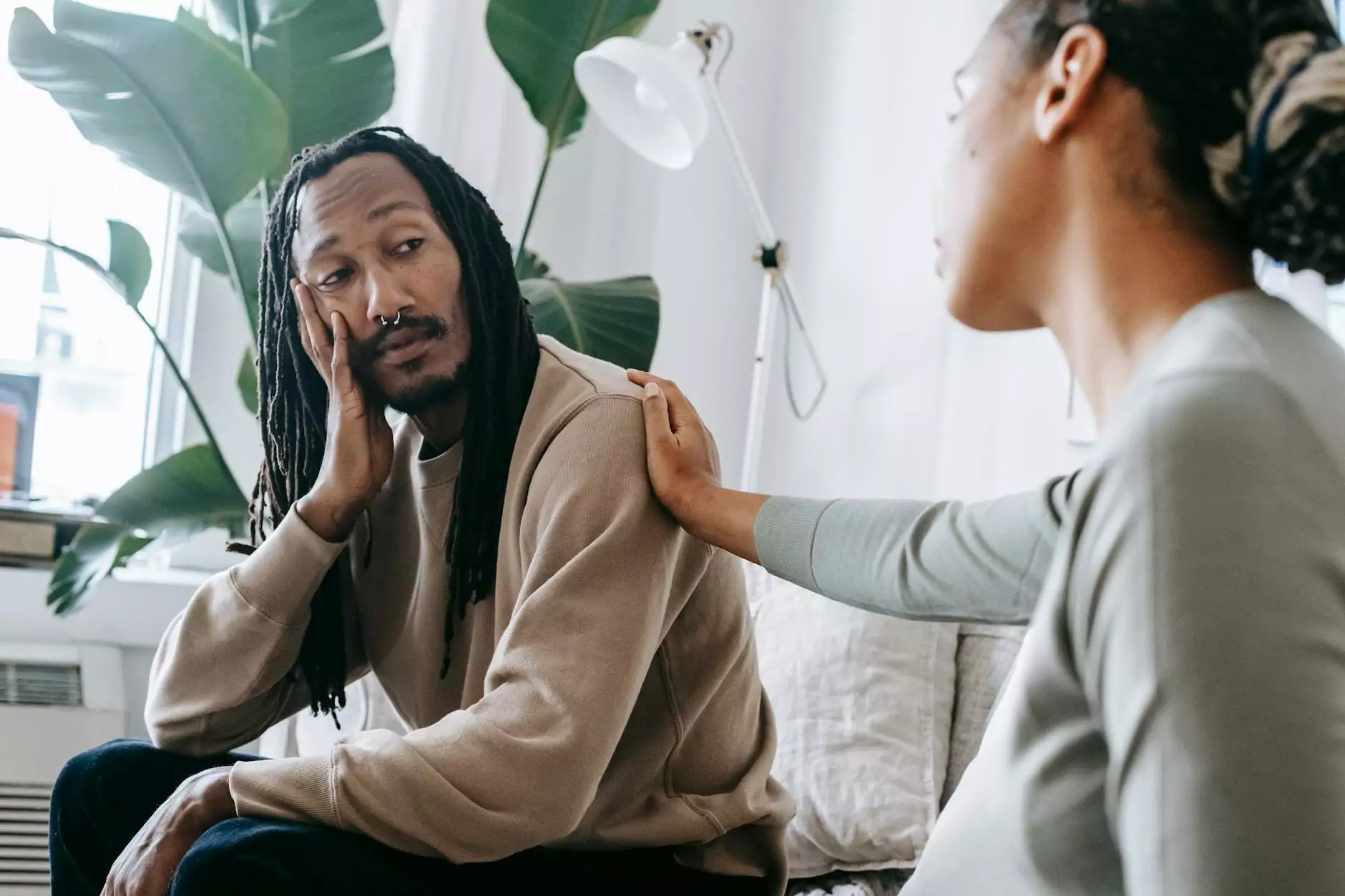Understanding Drugs Against Anxiety: A Comprehensive Guide

In today's fast-paced world, anxiety has become an all-too-common concern affecting millions globally. From day-to-day stress to chronic anxiety disorders, many individuals are seeking effective solutions. This article will delve into the various drugs against anxiety, informing readers about their use, benefits, and potential side effects, all while emphasizing the importance of consulting a healthcare professional before starting any medication.
What is Anxiety?
Anxiety is a natural response to stress, characterized by feelings of apprehension, worry, and nervousness. However, when these feelings become persistent and interfere with daily activities, they may indicate an anxiety disorder. Common anxiety disorders include:
- Generalized Anxiety Disorder (GAD)
- Panic Disorder
- Social Anxiety Disorder
- Obsessive-Compulsive Disorder (OCD)
- Post-Traumatic Stress Disorder (PTSD)
How Are Anxiety Disorders Treated?
Treatment for anxiety typically involves a combination of therapy and medication. Cognitive-behavioral therapy (CBT) is one of the most effective therapeutic options. However, for many patients, drugs against anxiety provide significant relief.
Types of Drugs Used to Combat Anxiety
There are several classes of medications used to treat anxiety disorders, each with its mechanism of action. Below are the main categories:
1. Benzodiazepines
Benzodiazepines are a class of medications commonly prescribed for short-term relief of severe anxiety symptoms. They work by enhancing the effects of a neurotransmitter called gamma-aminobutyric acid (GABA), which has a calming effect on the brain.
Common benzodiazepines include:
- Alprazolam (Xanax)
- Diazepam (Valium)
- Clonazepam (Klonopin)
- Lorazepam (Ativan)
While benzodiazepines can be effective, they are generally recommended for short-term use due to the risk of dependence and withdrawal symptoms.
2. Selective Serotonin Reuptake Inhibitors (SSRIs)
SSRIs are often the first-line treatment for various anxiety disorders. They work by increasing levels of serotonin in the brain, which can improve mood and reduce anxiety.
Popular SSRIs include:
- Fluoxetine (Prozac)
- Escitalopram (Lexapro)
- Sertraline (Zoloft)
- Paroxetine (Paxil)
SSRIs are generally well-tolerated and considered safe for long-term use.
3. Serotonin-Norepinephrine Reuptake Inhibitors (SNRIs)
SNRIs are another class of antidepressants that are effective in treating anxiety. They work by increasing both serotonin and norepinephrine levels in the brain.
Common SNRIs include:
- Venlafaxine (Effexor)
- Duloxetine (Cymbalta)
SNRIs may be particularly beneficial for patients who experience physical symptoms of anxiety, such as muscle tension and pain.
4. Buspirone
Buspirone is an anti-anxiety medication that is often prescribed for chronic anxiety. Unlike benzodiazepines, buspirone is not sedative and does not cause dependency.
This medication is particularly useful for treating generalized anxiety disorder and can take several weeks to show its full effects.
5. Beta-Blockers
While primarily used to treat heart conditions, beta-blockers like propranolol are effective in controlling physical symptoms associated with anxiety, such as rapid heartbeat and shaking, especially in situations that provoke anxiety, like public speaking.
Benefits of Using Medications for Anxiety
Drugs against anxiety provide several benefits, including:
- Rapid Relief: Benzodiazepines can provide quick relief for acute anxiety symptoms.
- Improved Quality of Life: Effective treatment can lead to a significant improvement in daily functioning and quality of life.
- Long-Term Management: SSRIs and SNRIs can help manage anxiety symptoms over a prolonged period.
- Reduction in Physical Symptoms: Medications can alleviate physical symptoms associated with anxiety disorders.
Considerations and Side Effects
While medications can be highly beneficial, they also come with potential side effects and risks. It's crucial for individuals to discuss these with their healthcare provider. Common side effects can include:
- Drowsiness
- Dizziness
- Dry mouth
- Nausea
- Changes in weight
Additionally, long-term use of benzodiazepines can lead to dependence and withdrawal issues, making it essential to use these medications under medical supervision.
Natural Alternatives and Complementary Treatments
In addition to traditional medications, many individuals seek natural and complementary treatments for anxiety. Some common alternatives include:
1. Herbal Remedies
Some people find relief from anxiety through herbal supplements, such as:
- Kava: Known for its calming properties.
- Valerian root: Often used to promote relaxation and sleep.
- Chamomile: Commonly used in teas to reduce anxiety symptoms.
2. Mindfulness and Meditation
Practices such as mindfulness meditation can help individuals manage anxiety by promoting relaxation and altering the brain's response to stress.
3. Exercise
Regular physical activity has been shown to reduce symptoms of anxiety and improve overall mental health.
4. Therapy
Alongside medications, therapy, especially Cognitive Behavioral Therapy (CBT), can be instrumental in addressing the root causes of anxiety and developing coping strategies.
Conclusion
Understanding the available drugs against anxiety and their functions can empower individuals to make informed decisions regarding their mental health. Whether opting for prescription medications or exploring natural alternatives, collaboration with a healthcare provider is crucial for effective treatment. Remember, mental health is an integral part of overall well-being, and seeking help is a vital step in managing anxiety.
Visit Us
For more information on drugs against anxiety and related health products, visit Top Chemical Shop Online. We are committed to providing our customers with safe and effective solutions for all their health and medical needs.









